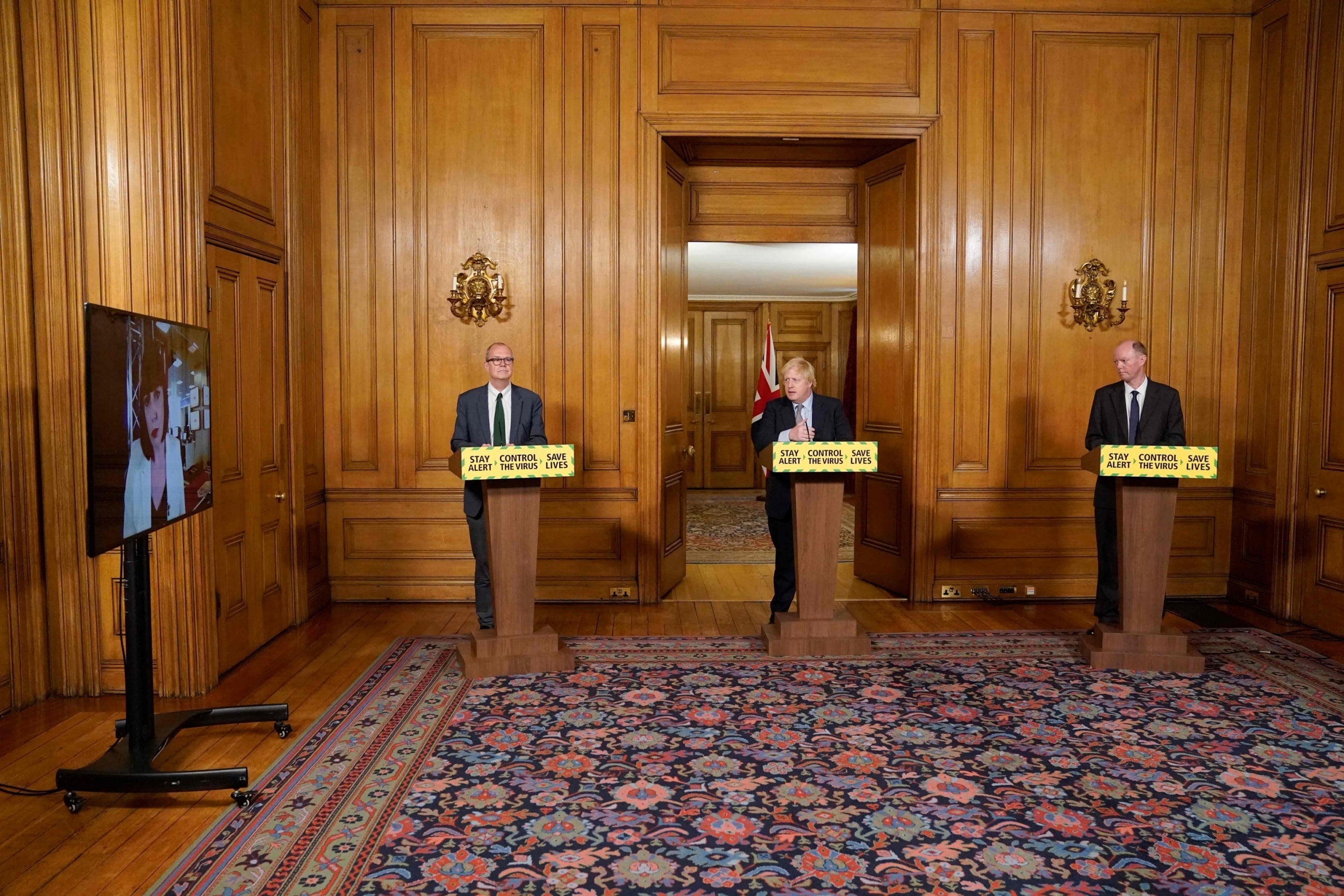How Boris Johnson is ducking scrutiny
The government’s decision to bring an end to the weekend coronavirus press conferences is part of a slow but unmistakeable retreat from critical observation, writes Sean O'Grady


The government’s stated reason for abandoning the Saturday and Sunday editions of its daily coronavirus UK press conferences is an unusual one: poor ratings. Normally this is the kind of criteria ruthlessly deployed by television channel controllers against a struggling soap, rather than HM Government running a public information campaign. Perhaps ministers should ask Davina McCall or Graham Norton to add a little glamour to the proceedings. Certainly if ratings were that important, much of the output of BBC Parliament would be scrapped.
Less flippantly, the move means even less scrutiny for the ministers and officials in a crisis which is far from over. The daily updates on data and new initiatives (albeit mostly for England) were obviously part of getting the key messages across.
In point of fact, the weekend ratings were not so bad. For BBC One and the BBC News channels the recent comparative figures are as follows:
* Thursday 28 May – 3.8 million
* Friday 29 May – 2.8 million
* Saturday 30 May – 2.1 million
* Sunday 31 May – 2.5 million
* Monday 1 June – 2.8 million
The cancellation of the weekend conferences has led to some uncharitable speculation. Maybe it is a way of avoiding having to respond to unwelcome weekend/Sunday newspaper revelations, such as those about the prime minister’s chief adviser Dominic Cummings. It might also be a further way of shutting out the media and its irksome questioning, derided as “gotcha journalism” by some. Even less charitably, some ministers on media duty might like to have their weekends back.
It is part of a slow but unmistakeable retreat from scrutiny. Over recent weeks, for example, the Downing Street conferences have grown shorter. The first one on 16 March, featuring the prime minister, ran for 52 minutes. The one on 16 April was 56 minutes long, but by 16 May the running time was down to 37 minutes. Thus the government is moving from around a total of six hours a week of crisis scrutiny to three hours or so. The freedom of journalists to ask supplementary questions is variable, and the public is now allowed to have the first two questions. The prime minister’s appearances will be limited to once a week in future. It’s worth noting as well that weekly prime minister’s questions is also shorter than in Theresa May’s time.
In any case there is a marked contrast with Scotland. First Minister Nicola Sturgeon routinely attends all the weekday lunchtime briefings and the Scottish Government will continue to run these seven days a week. Perhaps Ms Sturgeon is demonstrating to the people of Scotland that their government can run such things better than the crew at Westminster; her poll ratings would bear that out.
For all their various shortcomings, on all sides, the live media conferences held in London, Edinburgh, Cardiff and Belfast have met a public demand for information, explanation and guidance during this extraordinary period. In some weeks, when the respective parliaments of assemblies have not been sitting these sessions represented the sole immediate channel of accountability for executive ministers wielding emergency powers. The mood in the UK government, however, is to step back from such exposure.
Subscribe to Independent Premium to bookmark this article
Want to bookmark your favourite articles and stories to read or reference later? Start your Independent Premium subscription today.
Join our commenting forum
Join thought-provoking conversations, follow other Independent readers and see their replies
Comments